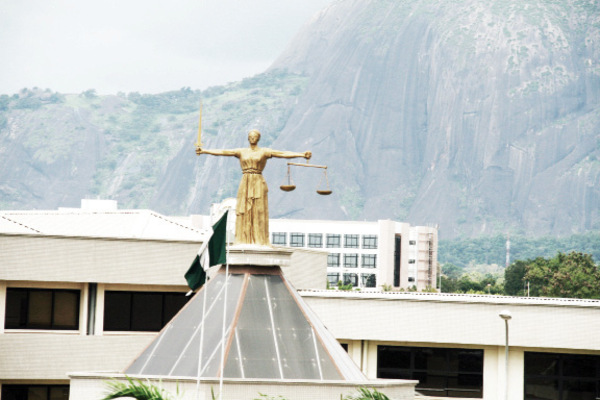The decision to take down historical signs commemorating the founding of the Massachusetts Bay Colony in Concord is receiving some backlash from the community, with one resident saying the matter should have been voted on.
Officials removed the so-called tercentenary markers in late January after a pair of commissions argued the signs had harmed Indigenous people and didn’t accurately reflect what happened when settlers founded the town in 1635.
Resident Fred Berthoff, whose family has lived in town for the better part of the past 60 years, reflected how he and tourists would often stop to read the signs to gain knowledge of the town’s history. In particular, he pointed out how “The Milldam” sign, marking the site of an Indian fishing weir, provided an understanding of the layout of downtown but “now no one will know.”
“I think a lot of people don’t like it but they don’t want to be public about it because it is such a hot button issue,” Berthoff told the Herald. He said a question about whether to remove the signs should have appeared as a ballot question.
Two other tercentenary signs highlighted an oak tree that settlers bought from Indians for the town’s incorporation, called “Jethro’s Tree” and a slope where settlers built their first dwellings, called “The First Settlement.”
Concord received the three markers in 1930 from the Massachusetts Bay Colony Tercentenary Commission as part of an initiative recognizing the 300th anniversary of the original colony’s founding.
The Diversity, Equity and Inclusion Commission as well as the Historical Commission found the signs as “problematic and antithetical to the inclusive goals of the Town of Concord,” said Donna McIntosh, the town’s communications manager.
“Following the recommendation of the Select Board, the chairs of the DEI Commission, Historical Commission, and Historic Districts Commission have been invited to begin a conversation to discuss the interpretation and messaging on these sites, as well as a plan for the actual signs, which are period pieces,” McIntosh said in a statement to the Herald.
The Select Board voted in November to remove the signs temporarily for maintenance, soon after members initially decided to cover them up, according to the hyperlocal Concord Bridge.
Select Board Chairman Henry Dane cast the lone vote against the removal and coverings. He then consulted with historians who told him the signs conveying the land transactions were not accurate but “they did not provide much detail about what the correct version was,” he told the Herald.
“I don’t think there’s much question that the history could be expressed more accurately but that was no reason to remove the signs,” Dane said. “The signs are not like scholarly ‘treat this with footnotes.’ They’re basically providing the accepted version of the story for tourists who come to visit the town.”
When asked whether the signs should go to referendum, Dane said: “I don’t think … that’s the kind of issue that ought to be politicized.”
The removal of the signs, despite being a “hasty and ill-considered decision,” isn’t the end-all, be-all, Dane said. The town’s deputy manager is working to convene a meeting with interested stakeholders on how to proceed from here, he said.
Joe Palumbo, chairman of the Diversity, Equity and Inclusion Commission, in a November memo to the Select Board said the signs “ignore the thousands of years of previous indigenous settlement” before the colonists arrived and there’s “no evidence that the local indigenous peoples ever (willingly) sold the land,” the Concord Bridge first reported.
Arlington resident Richard Bond is a descendant of the Rev. Peter Bulkeley, a colleague of Simon Willard, the founder of Concord. Bond also has relatives who are Indigenous.
In an interview Saturday, Bond told the Herald if the signs are going to commemorate the founding of the town, they must include the Native perspective. He highlighted how Natives were at a “disadvantaged position in terms of the transaction” as they fell ill from the smallpox epidemic.
“If there’s going to be an inscription describing what happened from a Euro-centric perspective,” Bond said, “there also be an inscription that would describe it in terms of the situation that the Native community was in at the time.”
Bond also took exception to how the signs carried a depiction of the Massachusetts state seal originally adopted in 1898. It features a disembodied arm of Plymouth colony military adviser Myles Standish holding a sword over the head of a Native American figure in a peaceful stance.
Historical Commission member Nancy Fresella-Lee, in a November Select Board meeting, also highlighted the state seal. A state commission tasked with rethinking the seal and motto disbanded without any specific recommendations after two years of work.
“They are not works of art and their intention is to convey educational information,” Fresella-Lee said of the signs. “They are no longer educational, and in fact, they are offensive.”
In total, the Massachusetts Bay Colony Tercentenary Commission placed 275 cast-iron markers in 95 cities and towns across the Commonwealth, but as time has gone on, many have been lost or fallen into a state of disrepair.
The state Department of Transportation restored 21 historic markers found in 10 cities and towns, all in central or western Massachusetts, in 2019. At the time, the agency recovered roughly 174 of the original 275 signs.
Concord native Daniel Wilson said his family was one of the first 15 to settle in Concord and acknowledged that not all land transactions were done peacefully. He sided with Berthoff that there should have been a vote on the signs.
“When you cancel history like that and you start focusing on rewriting history, that generation is just going to repeat the bad history because they didn’t learn anything from it,” Wilson told the Herald. “My ancestors would be rolling over in their graves.”







